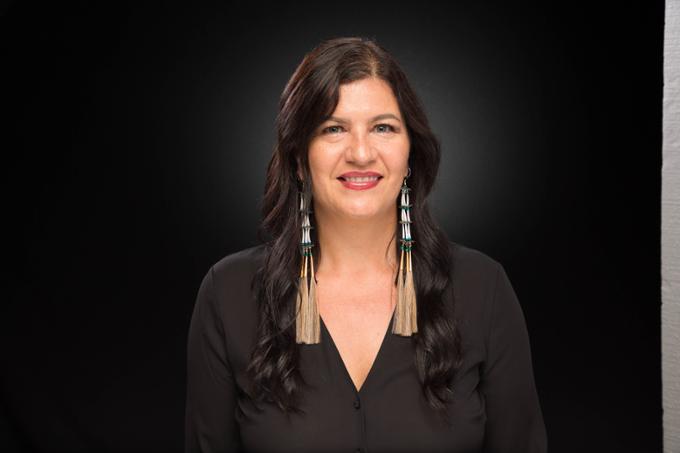On January 12, the leadership of the Star Blanket Cree Nation, located near Lebret, Saskatchewan, announced that ground-penetrating radar had detected some 2,000 below-surface anomalies near the site of the former Qu’Appelle Indian Industrial Residential School. Some of those anomalies are thought to be the remains of children.
Lori Campbell has heard this before.
On three occasions, the University of Regina’s Associate Vice-President, Indigenous Engagement, has issued public statements following similar discoveries. The first two sites - discovered in 2021 – were at Tk’emlúps te Secwépemc First Nation near Kamloops, British Columbia and Cowessess First Nation, north of Broadview, Saskatchewan. Then, in early 2022, a similar discovery was made at Fort Pelly and St. Philip’s Indian Residential Schools at Keeseekoose First Nation near Kamsack, Saskatchewan.
Campbell says while such announcements are disturbing and heart-breaking, they come as little surprise to Indigenous communities.
“Our Old Ones have been talking about these graves since residential schools began,” says Campbell. “Volume 4 of the Truth and Reconciliation Commission’s final report focuses on missing children and unmarked burials. This is not a surprise to Indigenous people.”
The Qu’Appelle Indian Industrial Residential School (also known as Lebret, St. Paul’s, and Whitecalf) was one of the earliest residential schools in Canada, opening in 1884. It was also one of the last to shut down, closing in 1998.
It’s estimated that 150,000 Indigenous children were forced to attend residential schools over a century in Canada and the Truth and Reconciliation Commission’s final report detailed that many experienced emotional, physical, sexual and cultural abuse. The commission also estimated that 3,200 students died while attending residential school.
Campbell is certain this is not the last we will hear about unmarked graves being discovered near former residential school sites using ground-penetrating technology. She says there have been about 80 similar searches going on at residential school sites across Canada, yet only about a dozen have reported their findings. Still, she says, it’s an important time for all Canadians to support Indigenous peoples.
“I think we need to listen to Indigenous leaders and Indigenous communities,” Campbell says. “One of the things they are asking for is support and resources to build healing and wellness centres. That’s something that the greater non-Indigenous community needs to support and acknowledge. Indigenous peoples know what they need to get through this. Everyone needs to support what it is communities need.”
Campbell says she received an outpouring of condolences and support from non-Indigenous colleagues after the announcement – something she welcomes and is confident will continue.
“The acknowledgement and recognition of what has happened is extremely important,” she says. “We have such close ties as a campus to Star Blanket community. First Nations University of Canada is located on the atim kâ-mihkosit (Red Dog) urban reserve, created by Star Blanket Cree Nation.”
For non-Indigenous faculty and staff members, support is available through your Employee and Family Assistance Program which can be accessed by logging into UR Self Service here.
Banner Image: Photo U of R Photography
Truth & Reconciliation is one of five areas of focus in the University of Regina's 2020-2025 Strategic Plan kahkiyaw kiwȃhkomȃkȃninawak - All Our Relations. We strive to honour and integrate Indigenous ways of knowing and being in our teaching and research endeavours.
About the University of Regina
Set in the heart of the Canadian prairies we are a comprehensive, mid-sized university where the opportunities are as limitless as the horizon. Our campuses are on Treaty 4 and 6 - the territories of the nêhiyawak, Anihšināpēk, Dakota, Lakota, and Nakoda peoples, and the homeland of the Michif/Métis nation. It is our responsibility to strengthen relationships with Indigenous communities to build a more inclusive future for all. Our three federated colleges, 10 faculties, 25 academic departments, and 18 research centres foster innovative research with practical and theoretical applications. We are committed to cultivating the potential of our 16,000 students and supporting their health and well-being. We take learning beyond the classroom through work and volunteer experiences to develop career-ready graduates.
Let’s go far, together.
